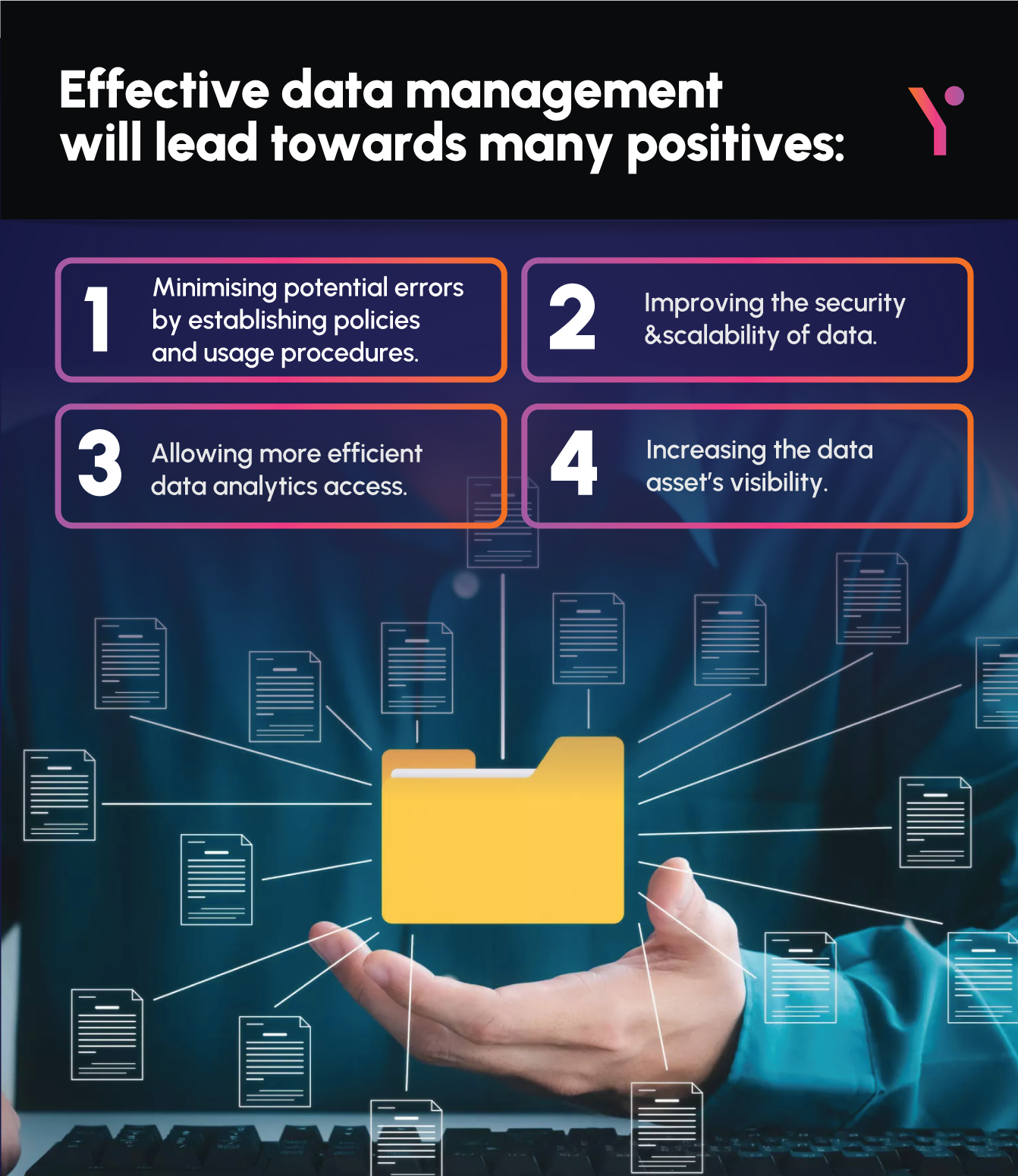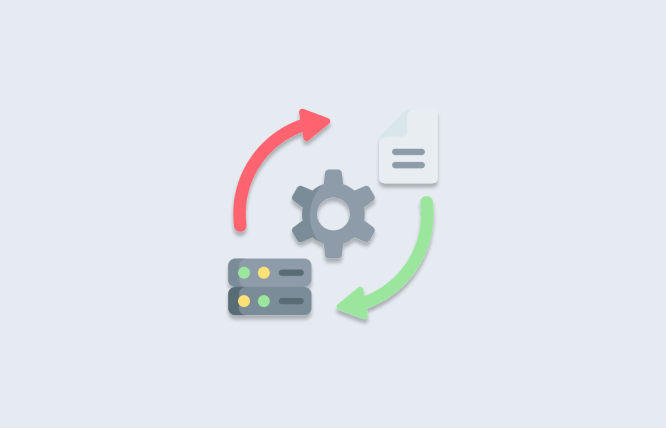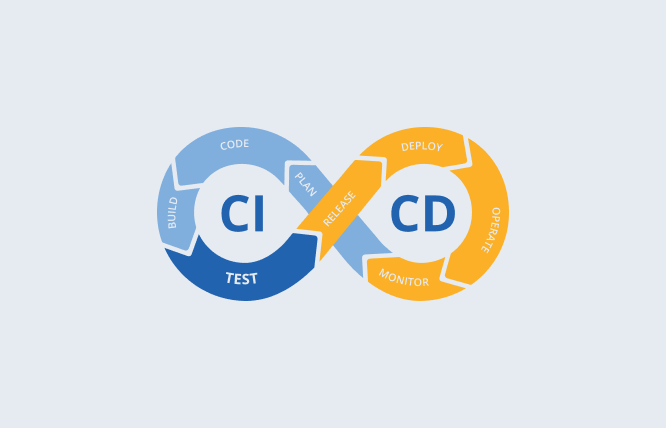Introduction
Proper utilisation of data management trends can immensely benefit today’s organisations of various sorts.
The data management process deals with the storage, processing, and collection of data,aswell as the laws and regulations that safeguard the rights of individuals.It must be made clear here that the management of a company’s data involves a host of procedures, policies, and practices. Businesses of all sorts should expect prominent changes in their data management processes throughout 2025.
The keyobjective of data management is to cost-effectively and efficiently utilise data,all the while assisting individuals in their attempts to complete projects and tasks. This is why the development of a reliable data management strategy has become vital for today’s organisations of all sorts. Take note of the fact that a reliable data management strategy must take into account the data management trends, and should have a set of data management toolsand techniques, and should be able to support business analytics and intelligence.
Understand that data management systems usually develop around a reputed data management platform. This can include software that supports data integration, data analytics, data lakes, data warehouses, databases, and more. After you are done reading this blog, it will be best if you take a look at a host of concepts, such as ERP system development and affordable CRM software for small business. 
Important Data Management Trends
The following are the leading data management trends in 2025 that organisations should watch out for:
Automated Data Management
Many of today’s leading software developers have identified the decrease in the need for manual data management as a key objective. No doubt, the installation of automated data management tools can show itself as a rather complicated process, but if this is done rightly, it will eliminate complex manual labour, decrease costs, and enhance efficiency. The following are a few of the automated processes that organisations prefer to utilise in 2025:
Data Cleaning
This is the process of correcting errors, standardising data formats, and removing duplicate records.
Data Collection
Data collection from a host of sources, such as documents, databases, and different websites.
Data Integration
This takes into account data collection, which is later transformed into a required format and stored in a single repository.
Data Analysis and Processing
This is the use of machine learning or algorithms to develop helpful insights from the data.
Data Governance
The purpose of this process is to ensure that the data is being handled in accordance with governmental regulations and as per a business’s policies.
Additionally, it is important to highlight here that in 2025, you can expect Artificial Intelligence and Machine Learning to offer valuable automation services. Already, this point is noted by those who take a keen interest in data management trends.
Maximising Healthcare
It has been observed by many that unlike the retail and banking industries, the healthcare industry has yet to make a good degree of utilisation of big data research or data analytics. There are a host of reasons for this, such as lack of emphasis on profits or patient privacy.
However, in the recent past, it has been observed that the healthcare industry has begun to utilise big data and analytics to seek patterns. In light of this, a prominent example can be taken from France, where four hospitals (which were members of Assistance Publique-Hopitaux de Paris) utilised their hospital admission records of the previous ten years to make hourly and daily predictions. These were with regard to the number of patients that they may expect at all their facilities. A prominent point about this analysis was that it offered admission rate-related patterns.
Another rather renowned example of data analytics associated with the healthcare industry is the usage of real-time alerting. It is being observed that hospitals have started using Clinical Decision Support software. This goes on to analyse medical data on the spot, offering health practitioners beneficial advice as they make prescriptive decisions.
Data Management Associated with Hybrid Cloud Security
Many analysts believe that throughout 2025, you can expect data management systems to utilise network segmentation, cybersecurity mesh architecture, and encryption as ways to offer hybrid cloud security and safeguard data.
In recent times, the hybrid cloud’s definition has been enhanced, from the blending of an on-premise system in conjunction with a public cloud to the addition of multi-cloud systems. It is imperative to point out here that a hybrid cloud is meant to support a flexible system that offers access to a host of specialised tools. Additionally, some experts have raised the concern that using a multi/hybrid cloud system brings a host of security issues.
The utilisation of numerous clouds becomes complex from both the security and management perspective. When there is no proper procedure in place to monitor and track the usage of various cloud services, it becomes extremely difficult for management to figure out who is using the available resources.
Furthermore, the management will be clueless about when they are being utilised and will know about it only after they get the bill with regards to it. Note that observability becomes ever-so crucial because a number of applications use multi-clouds and on-premise systems to work and access data. Here, the term “observability” refers to the ability to monitor events and data across a host of in-house systems and clouds.
A good number of vendors, such as Datadog and Middleware, have come to recognise this need to be completely focused on offering observability tools that present a “single pane of glass” for the purpose of viewing.
Another rather obvious concern is that a host of clouds make use of various security forms. This means that the development of a system that can effectively interconnect every cloud utilised by your company to work on numerous projects presents a prominent security concern. This is because every single connection could actually be a possible breach. Multi/Hybrid clouds present significant flexibility in the quick transfer of workloads between a host of environments. However, take note of the fact that the process has the potential to raise security risks.
Data Management via Artificial Intelligence
Using Artificial Intelligence for the purpose of data management (DM) is not a new phenomenon. The fact is that in recent years, it has attained growth in fame. Before 2023, it was observed that Artificial Intelligence was used for DM tasks, and it acted like a highly intelligent version of automated processes. Understand that today, Artificial Intelligence is utilised for a number of DM tasks. Some of these are as follows:
- Metadata management
- Data cataloguing
- Data governance control monitoring
- Anomaly detection
- Metadata auto-discovery
- Data mapping
It is because of the advent of ChatGPT, as well as a large language model that supports it, you can expect fresh solutions that present learning-based and intelligent services. Since large language models are evolving at a good pace, all those services that support Data Management processes are expected to evolve with them.
Note that Open AI, which has been the maker of ChatGPT is experimenting with Data Management. There are also reports that a host of other firms that are involved with Artificial Intelligence are also experimenting with Data Management.
Concluding Remarks
The information provided in this blog clearly hints that the data management trends in 2025 will continue to make a prominent impact. It has been hinted that if any given organisation is able to make proper use of data management processes and trends, then this will assist it in achieving its overall objective of enjoying the desired profit margins and business objectives.
Finally, if you want a software solution associated with data management then contact FuturByte today. They come as a reputed software solutions provider that enjoys a globally-based client base.
Frequently Asked Questions
Edge computing tends to decentralise data storage and processing, and this means bringing computation close to a given data source. It is important to highlight that this trend demands new approaches to data management, such as distributed data management systems and edge analytics, for the purpose of handling the velocity and volume of data generated at the edge.
Machine learning is used to automate tasks like anomaly detection, data cleansing, and data integration. Additionally, it can optimise data retrieval and storage processes, enhance predictive analytics capabilities, and improve data quality.
Data virtualisation is the abstraction of data from its storage, format, or physical location and presenting it to applications or users in a unified view. The reason why it is gaining traction is because it allows any given organisation to analyse and access data from disparate sources without requiring replication or physical movement. The result here is an improvement in agility and a reduction in complexity.
It is because of the increasing complexity and volume of data that today’s organisations are placing an immense level of emphasis on data governance. This is done in order to ensure security, compliance, and data quality. A host of privacy regulations, such as CCPA and GDPR, demand organisations to properly implement reliable data management practices in order to safeguard sensitive information and take into account individuals’ right to privacy.
Have questions or feedback?
Get in touch with us and we‘l get back to you and help as soon as we can!


